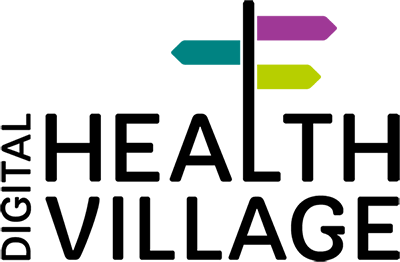Digital Care Pathway for Gastric Bypass Patients Benefits the Patients and Brings Significant Savings to Society
The digital care pathway for gastric bypass surgery has been in place for just over a year at Helsinki University Hospital (HUS). It has been so useful that it has now replaced post-operative control appointments at the clinic. At the same time, the number of emergency visits to the hospital has halved.
The digital care pathway for gastric bypass patients is a program of about one year in duration that prepares the patient for surgery and provides support after it. The service is integrated with the conventional care pathway for gastric bypass patients at HUS.
The digital care pathway saves the time of both patients and doctors by providing patients with the essential information they need.
“More than 85% of the patients who have undergone surgery have used the digital service. The care pathway for gastric bypass surgery enables patients to communicate with medical staff. Patients are also given information on rehabilitation and exercises that help them implement lifestyle changes. The number of surgery-related contacts has decreased by 30% and the number of emergency visits to the hospital by more than 50%, with a sample of 100 patients”, says Anne Juuti, a bariatric surgeon at the Abdominal Center at HUS.
“This is an important result that shows that digital services improve both the quality and productivity of care. Improved care quality is manifested in the reduced number of both emergency visits to the hospital and unplanned contacts with medical staff, and productivity has also improved as the digital care pathway replaces conventional appointments”, Esko Kemppainen, director of the Abdominal Center, notes.
The digital care pathway for gastric bypass offers information about the surgery and on how to prepare for it, written instructions, and independent, functional exercises for the various stages of the patient's care pathway. The themes of the exercises include nutrition, physical exercise, mental skills and lifestyle changes. The pathway reminds the patient of control appointments and the use of vitamin supplements. The patient is able to use the program to send messages to the gastric bypass coaches who work at the treatment unit.
- 10.05.2025 12:10
Watch a video about the impact of Health Village - 05.10.2024 11:45
Neuropsychological online rehabilitation improves service availability and generates savings - 29.01.2024 14:39
Health Village service benefits estimated at hundreds of millions of euros - 02.01.2024 08:00
The impact assessment of Health Village’s digital care pathways indicates: the greatest cost benefit is generated by scalability - 15.11.2023 12:45
Impact assessment of digital services helps allocate resources efficiently - 18.04.2023 15:55
The self-care program supports long-term weight management - 14.02.2023 13:16
Customers are equal co-creators in the Rehabilitation Hub - 20.12.2022 14:45
New digital care pathway helps discontinue post-operative pain medication gradually - 04.11.2022 15:08
Online Therapy for Insomnia at Helsinki University Hospital Proven to Be an Effective Treatment - 30.09.2022 14:24
Wound Navigator Helps Physicians and Nurses Examine Wound Patients - 05.08.2022 14:50
Digital Care Pathways Respond to the Patient’s Thirst for Information - 27.06.2022 11:13
Digital Care Pathway for Coronary Artery Disease Patients Awarded - 03.05.2022 15:21
The First Digital Service Pathway of Social Welfare Has Been Opened to Customers - 11.04.2022 13:51
Health Village is proud to be included as one of the Finnish future hospitals - 11.04.2022 13:04
Digital care pathway supports the parents of children with behavioural problems - 12.02.2021 14:28
Finnish healthcare provider stemming the spread of COVID-19 with data and cloud technology - 04.09.2020 18:29
Health Village at HIMSS & Health 2.0 Sep 7-11 - 01.04.2020 15:44
Health Village’s Coronabot Now Also Available in English - 16.03.2020 18:21
Health Village’s Coronabot Helps to Estimate the Likelihood of a Coronavirus Infection - 29.01.2020 08:00
Digital Care Pathway for Gastric Bypass Patients Benefits the Patients and Brings Significant Savings to Society
